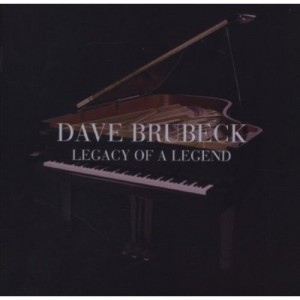 Diaa Bekheet | Washington, DC – I hosted a jazz show on VOA for 10 years until mid-2001. During that time, I had so many requests from listeners in Morocco, Tunisia, Algeria, Libya, Egypt and Iraq to play “Take Five” by the Dave Brubeck Quartet. Apparently, Brubeck’s music has international appeal! I recall hearing the song in the soundtrack of some classic Egyptian movies from the 1950s.
Diaa Bekheet | Washington, DC – I hosted a jazz show on VOA for 10 years until mid-2001. During that time, I had so many requests from listeners in Morocco, Tunisia, Algeria, Libya, Egypt and Iraq to play “Take Five” by the Dave Brubeck Quartet. Apparently, Brubeck’s music has international appeal! I recall hearing the song in the soundtrack of some classic Egyptian movies from the 1950s.
“Take Five” was first released in 1959 and became the best selling jazz single of all time. It is now included in a new two-disc collection of other familiar classics such as the “Blue Rondo a la Turk”, inspired during a Brubeck tour in Turkey in 1958. At the time, Brubeck was America’s jazz ambassador, named by the U.S. State Department. The legendary pianist and his Quartet also toured Afghanistan, Iraq, Iran, Pakistan, India and Sri Lanka. Brubeck also performed in the Middle East, Africa, Eastern Europe, and Asia.
I think Brubeck was always best, when paired with alto saxophonist Paul Desmond (who wrote “Take Five”), especially when they were improvising (as here) or (here), and when drummer Joe Morello added his personal improvisation, it drew applause.
 Brubeck’s new double album, “Legacy of a Legend” features influential pieces in jazz history recorded between 1954 and 1970. It includes vocal collaborations with jazz legends like Louis Armstrong, Jimmy Rushing and Carmen McRae.
Brubeck’s new double album, “Legacy of a Legend” features influential pieces in jazz history recorded between 1954 and 1970. It includes vocal collaborations with jazz legends like Louis Armstrong, Jimmy Rushing and Carmen McRae.
Columbia Records released the album on Dave Brubeck’s 90th birthday. He was born December 6, 1920 and he still plays! A few days after celebrating his birthday, Brubeck performed in the State of Ohio with the Cleveland Orchestra. He was greeted with a standing ovation during an emotionally-charged performance.
For more information on jazz music, listen to VOA’s Jazz America show.
Diaa Bekheet



 Author Norman C. Weinstein so loved “A Night in Tunisia” that he wrote a book about the images of Africa. In “A Night in Tunisia: Imaginings of Africa in Jazz” (you can read
Author Norman C. Weinstein so loved “A Night in Tunisia” that he wrote a book about the images of Africa. In “A Night in Tunisia: Imaginings of Africa in Jazz” (you can read